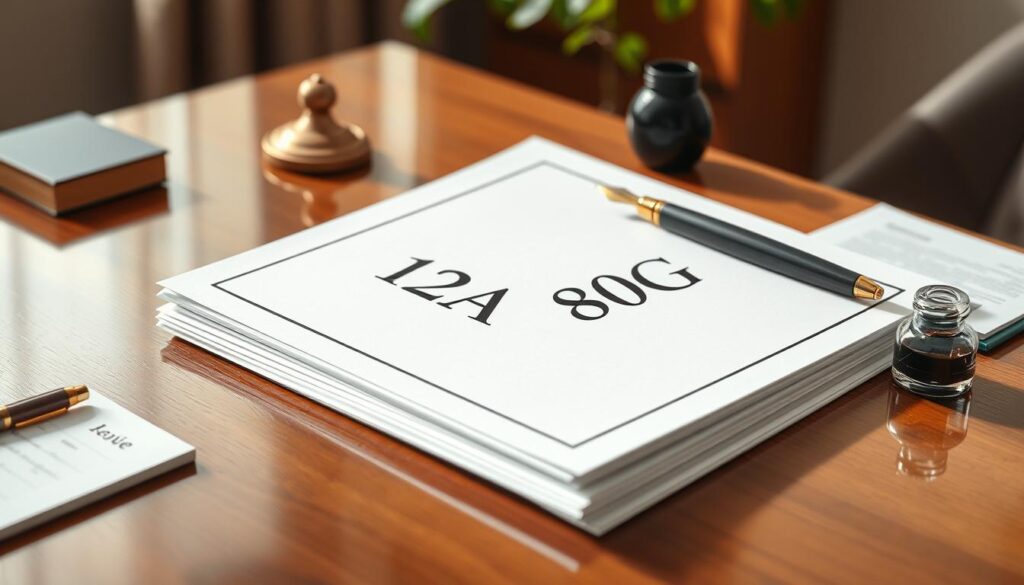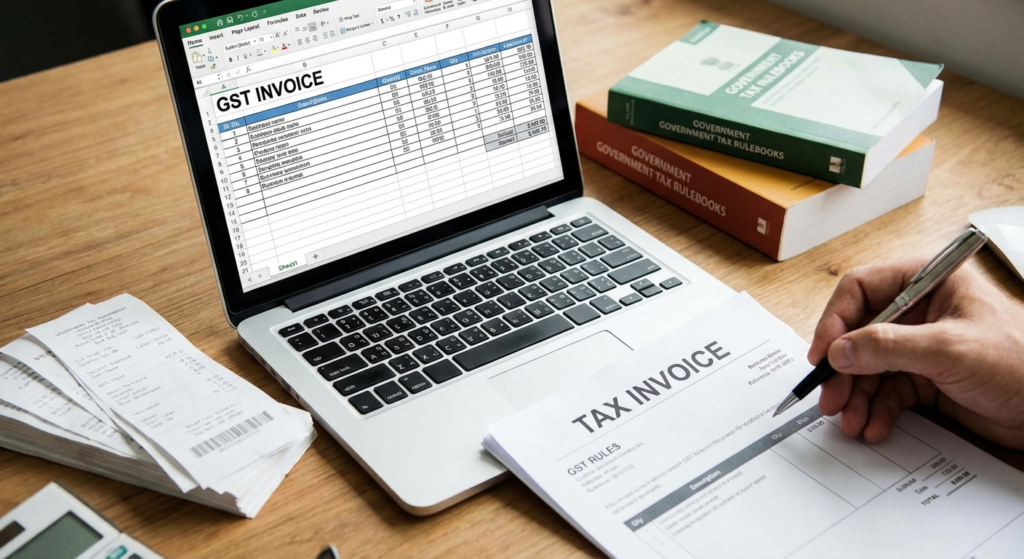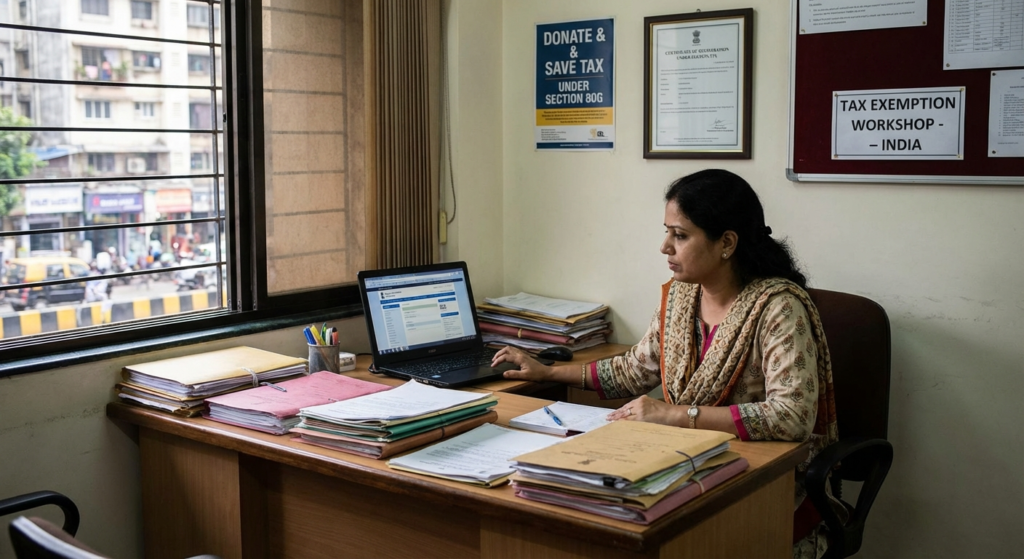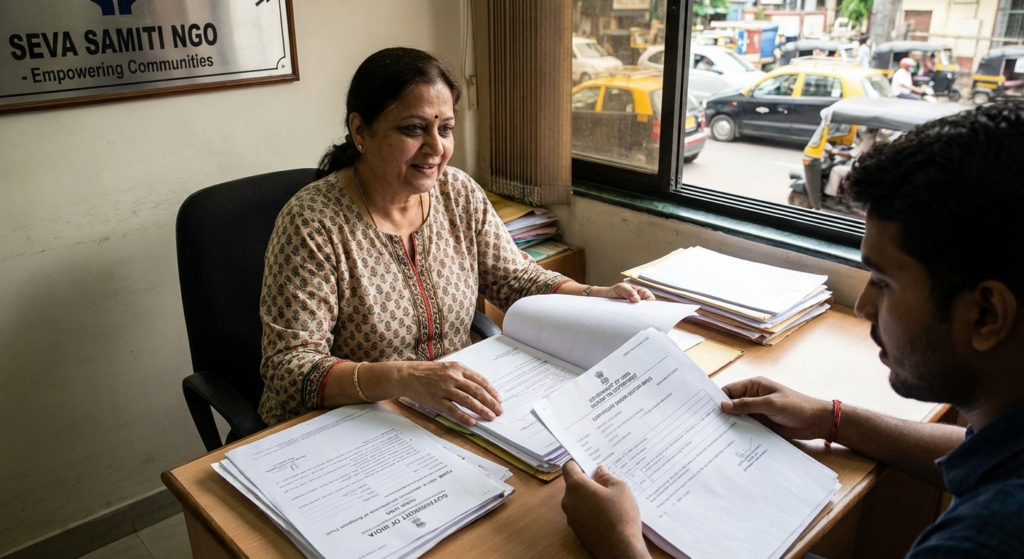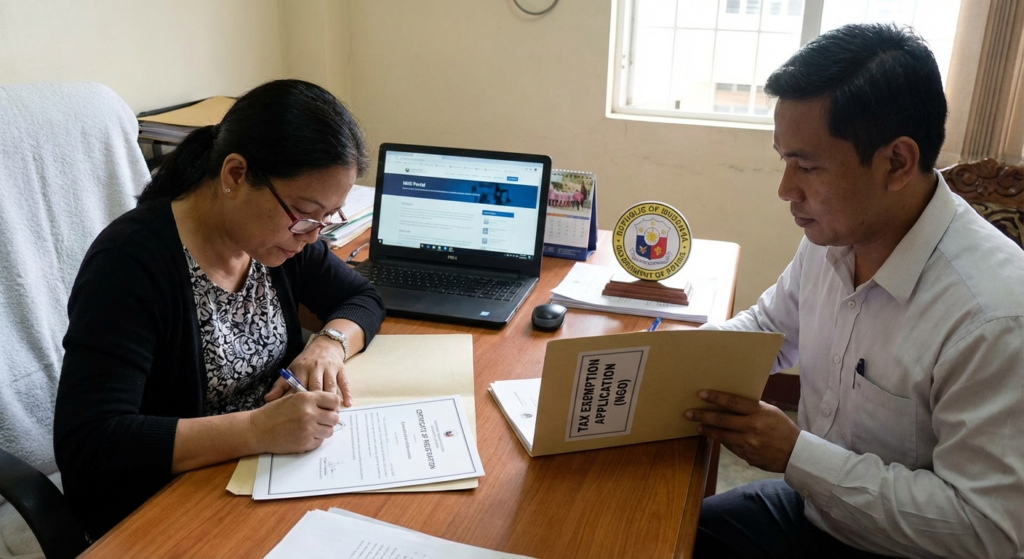In India, getting the right registrations is key for non-profits. It helps them get tax breaks and find funding. The 12A and 80G registrations are vital for NGOs. But, what documents do you need for these? Let’s explore 12A and 80G registration documents required.
The 12A registration lets non-profits get a tax exemption certificate from the Income Tax Department. On the other hand, the 80G certification makes donations more attractive by offering tax benefits. Both are crucial for charitable trusts, societies, and Section 8 companies in India.
Understanding 12A and 80G Registration Basics
In India, non-profit organizations need two key registrations: 12A and 80G. These are vital for managing money and keeping charities running. Let’s explore what these registrations mean.
What is 12A Registration?
The 12A registration lets NGOs avoid income tax, thanks to the Income Tax Act of 1961. It proves an NGO’s purpose and existence. It’s needed for getting government funds and donations.
What is 80G Registration?
The 80G registration lets donors get tax breaks for giving to charities. This encourages people and companies to help out.
Tax Benefits Overview
The main tax perks of 12A and 80G are:
- Exemption from income tax for NGOs registered under 12A
- Deduction of 50% of the donation amount from the donor’s taxable income, subject to certain limits, for contributions to 80G-certified organizations
These registrations help NGOs work well, get government help, and get donations for their good work.
| Registration | Purpose | Tax Benefits |
|---|---|---|
| 12A | Exempts NGOs from paying income tax | Exemption from income tax for NGOs |
| 80G | Allows donors to claim tax deductions on contributions | Deduction of 50% of donation amount from donor’s taxable income |
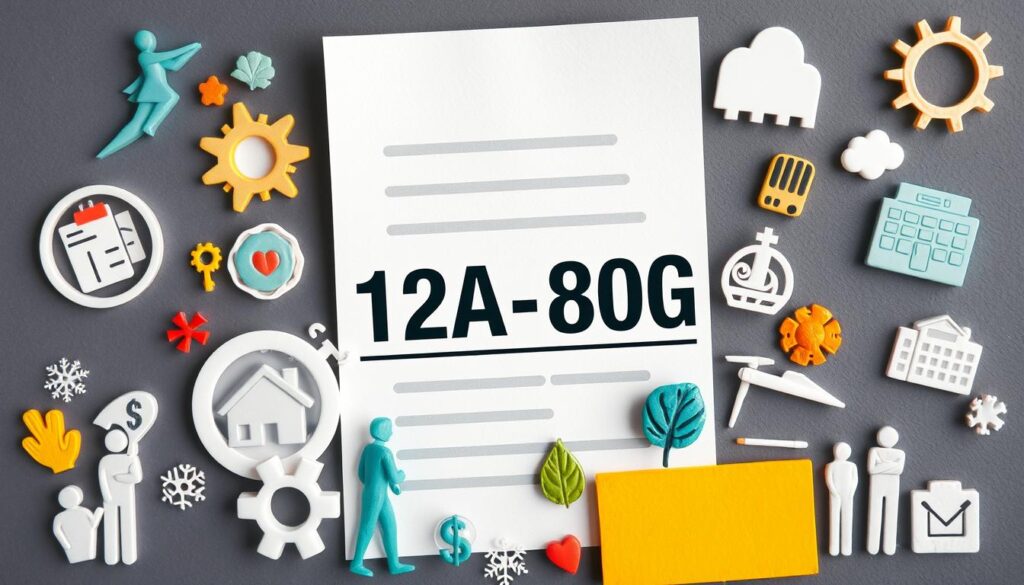
12a and 80g Registration Documents Required
Registering your non-profit under Sections 12A and 80G of the Income Tax Act, 1961 in India is key. It lets you get tax exemptions and benefits. You’ll need specific documents for this process. These are vital for the first registration and for any updates or changes.
It doesn’t matter if your NGO is a society, trust, or Section 8 company. The main documents required for 12A and 80G registration are:
- Certificate of Incorporation
- Memorandum of Association (for societies or Section 8 companies)
- Trust Deed (for trusts)
- PAN card of the NGO
- Utility bills (to show the registered office address)
- No Objection Certificate (NOC) from the property owner (if the office is rented)
- List of Board of Trustees
- Details of donors with their PAN numbers
- List of welfare activities done by the NGO
- Financial statements for the last three years
The Income Tax Department might ask for more documents during verification. Being well-prepared with these documents can make the registration smoother. It also boosts your chances of getting approved.
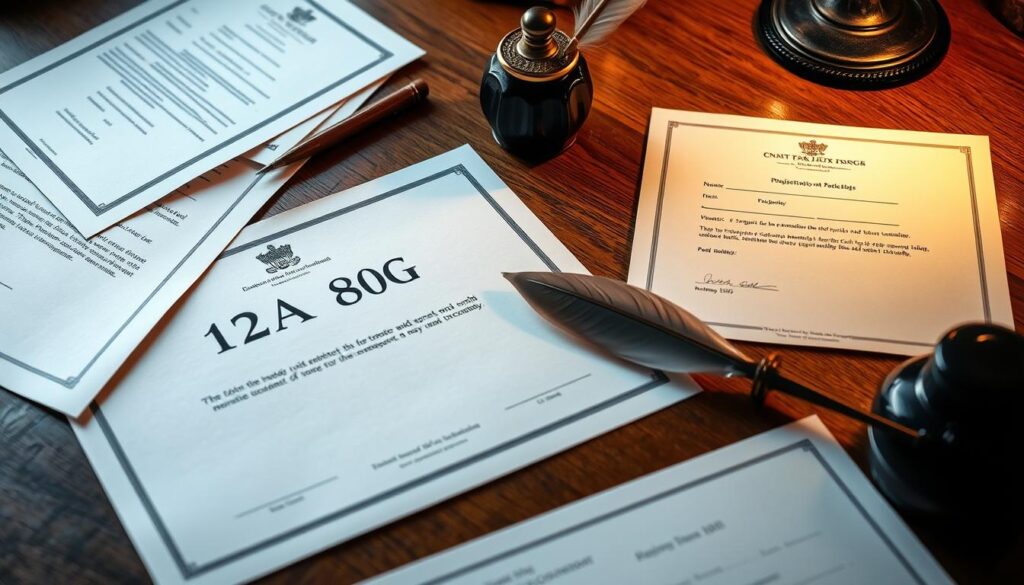
“Proper documentation is the key to unlocking the tax benefits for your non-profit organization in India.”
By carefully preparing the needed documents, you show your NGO’s eligibility and commitment. This helps secure the necessary registrations under Sections 12A and 80G.
New Registration Process and Timeline
Starting April 1, 2021, a new registration process for 12A and 80G is in place. Existing NGOs must reapply under Section 12AB. You need to use Form 10A or 10AB for this. New registrations take one month, while existing ones take three months.
Application Submission Steps
To get 12A and 80G registration, follow these steps:
- Go to the Income Tax Department’s E-filing Portal and pick Form 10A.
- Fill in the needed details and documents. This includes proof of creation, registration with the Registrar of Companies, and current registration orders.
- Submit the form online once you’ve filled out all the information.
Processing Period Details
The time it takes to process 12A and 80G registrations depends on your status:
- New / Existing registrations: 15 Days to One-month processing period.
Validity and Renewal Requirements
The new process also changes how long your registration is valid and when you need to renew it:
- Provisional registrations last three years. After that, you must apply for regular registration.
- Regular registrations last five years. You need to renew them six months before they expire.
- Trusts or institutions under Section 12AB must apply at least 6 months before their registration expires.
Understanding the new registration process and timeline helps organizations meet 12A and 80G requirements. This ensures they follow the Income Tax Act correctly.
Essential Financial Requirements for Registration
To get registered under Sections 12A and 80G of the Income Tax Act, NGOs in India must meet key financial needs. They need to keep separate books for any business income. Also, their bylaws must not allow spending on non-charitable things.
NGOs must stick to the 10% limit on donations eligible for 80G deductions. Donations over Rs. 2,000 in cash can’t be deducted. They must give certificates to donors and report donations to the Income Tax Department. This makes sure funds are used right for charity.
The documents required for 80g registration and requirements for 12a and 80g registration documents are vital. They help show the NGO’s financial trustworthiness. Following these rules helps NGOs keep their tax-free status. It also builds trust with donors and lets more resources go to charity, helping the community.
FAQ
Q: What are the documents required for 12A and 80G registration in India?
Q: What is the purpose of 12A and 80G registration for NGOs in India?
Q: What are the tax benefits of 12A and 80G registration?
Q: What is the new registration process and timeline for 12A and 80G?
Q: What are the essential financial requirements for 12A and 80G registration?
Please Rate this post
Click to rate

